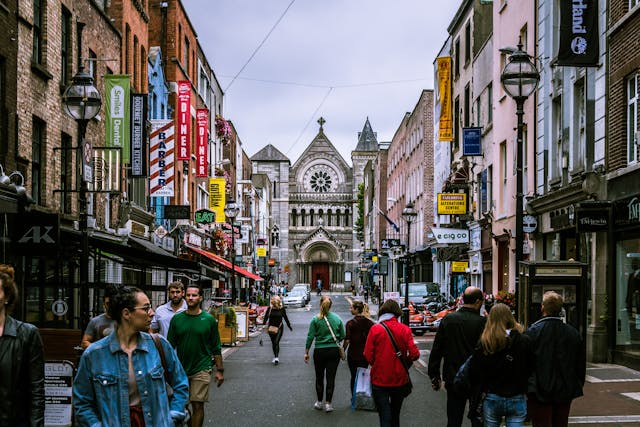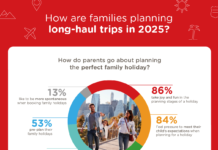- Workplace experts at Click Offices have offered guidance for employers managing ‘quiet vacationing’ at work
- The trend refers to employees not booking annual leave but being secretly absent from work
- Irish workers take over double the number of sick days per year versus the UK
- There were 12,000 UK searches for ‘quiet vacationing’ worldwide last month, up 1100% from the previous month
As we settle into the height of summer and holidays are underway for many workers, there may be some workers who may be partaking in the new trend of ‘quiet vacationing’. Quiet vacationing refers to workers who are officially meant to be working remotely but aren’t fulfilling their work duties and present for work.
The issue of quiet vacationing appears to be a rising problem globally, with the term originating in the USA but swiftly spreading to Ireland and the UK. According to studies on the trend Millennials were the most prolific ‘quiet vacationers’ but they are also the most likely to end the work year with unused annual leave. As the trend grows across younger workers, workplace experts at Click Offices wanted to offer guidance for employers so shared the following advice:
Who is at risk of quiet vacationing in Ireland?
Data from the CSO in 2021 revealed that 1 in 14 workers surveyed stated they had had annual leave requests declined, which could lead to a rise in quiet vacationing. Across Ireland, the average worker takes around 9.2 sick days per year. This is over double the UK’s average of 4.4.
According to Health & Safety Authority data, women are statistically more likely than men to call in sick to work, but men are far more likely to take longer periods of sickness of 4+ days, which could be sicknesses disguising unauthorised leave. CSO data showed women were also more likely to be declined annual leave versus their male counterparts, begging the question of why men had longer absences of sickness. The same CSO study also showed that single parents with 1 or more children are more likely to take unpaid sick leave, highlighting how lack of parental leave policies may be leading to unauthorised absences.
Which industries are most at risk of quiet vacationing
Those with full-time workers were much more likely to take sick leave versus part-time workers, according to the CSO. The CSO also reported that workers with a 20+ year tenure at businesses were most likely to be declined leave, proving company loyalty did not play a part in access to annual leave.
When it comes to industries, some were more likely than others to generally take sick leave. Health and social care roles, in general, take the most sick days versus other industries, despite typically offering higher than required annual leave packages. Across all industries, a 2019 survey found 58% of Irish workers felt they didn’t receive enough annual leave each year.
Which regions have the highest sick rates?
Dublin had the highest rates of worker illness from the most recent HSA data. This was followed by South-West and South-East.
Rate of worker illness per 1,000 workers by NUTS region in 2021 (CSO)
Mid-West 26.5
Midlands 26.7
South-East 34.7
South-West 36.6
Mid-East 35.0
West 28.5
Dublin 40.4
Border 21.2
The signs of quiet vacationing to watch out for
Shane Duffy, Managing Director at Click Offices, shares the following advice for employers:
“Whilst it can be easy for employers to be, understandably, frustrated with employee unauthorised absences, there may be more factors at play than businesses first think. Workplace culture and HR policies can have a huge impact on absenteeism at work. Firstly, you should review if your workplace is promoting a culture where workers feel they are allowed to take annual leave. Leave is important for employees to avoid burnout and promotes work/life balance. If bad managers are leaving employees with too much work that is overspilling into their free time, this may make workers feel they cannot take leave as they are too busy. Bad managers can also promote a fear culture where workers are afraid to request leave, leading to more instances of false sickness.
“For managers, the signs to watch out for to spot ‘quiet vacationing’ are:
- Workers taking long periods of time to respond to online messages
- Workers falling behind reasonable deadlines and forgetting work
- Workers who originally booked the dates off and got declined
- They aren’t available for video calls when requested
“Operating a fair and balanced policy where annual leave is managed properly will reduce unauthorised leave long-term as most employees will feel at ease with their ability to take time. Additionally, businesses measuring output as opposed to hours clocked will generally find their workers are more productive, as they are being measured on work not time.
“For employees, quiet vacationing can pose a huge risk to your career if you are caught with any unauthorised absence. Taking leave unauthorised could lead to disciplinary action being taken, which could even result in losing your job. You should always try to request leave in advance, speak to senior staff if you are having trouble getting leave approved and work with your boss to find a compromise that balances impact on work and finding time to switch off.”
Help keep news FREE for our readers
Supporting your local community newspaper/online news outlet is crucial now more than ever. If you believe in independent journalism, then consider making a valuable contribution by making a one-time or monthly donation. We operate in rural areas where providing unbiased news can be challenging. Read More About Supporting The West Wales Chronicle






















